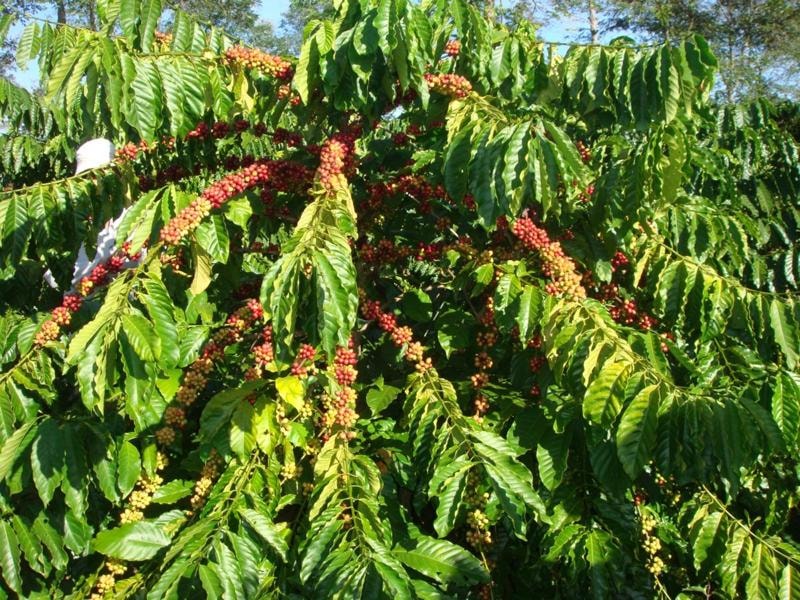
Organic coffee is a product that is grown without the use of chemical pesticides, inorganic fertilizers or growth stimulants. Instead, the entire process from soil care, plant varieties, pest control to harvesting follows ecological and environmentally friendly principles. This type of coffee not only helps protect consumers' health but also contributes to maintaining a sustainable ecosystem, reducing greenhouse gas emissions and conserving land resources. In the context of global agriculture moving towards sustainable development, organic coffee is increasingly popular in high-end markets and is a great opportunity for Vietnamese farmers.
Not all coffee varieties can be effectively applied in the organic model. The selected varieties must have good resistance to pests and diseases, adapt to local soil conditions and produce high quality beans to meet export demands.
In Vietnam, Arabica varieties such as Catuai, Typica or Bourbon are widely grown in highland areas such as Lam Dong and Son La thanks to their distinctive flavor and high economic value. With the Robusta line, new varieties such as TR4 or TRS1 are highly appreciated for their natural disease resistance and stable yield, suitable for organic farming conditions in the Central Highlands.
In addition, the Liberica variety (also known as jackfruit coffee) is also gradually gaining attention for its strong vitality and ability to create ecological balance when intercropped. Although less popular, it is favored in ecological agricultural models thanks to its ability to create canopy and retain water for the soil.
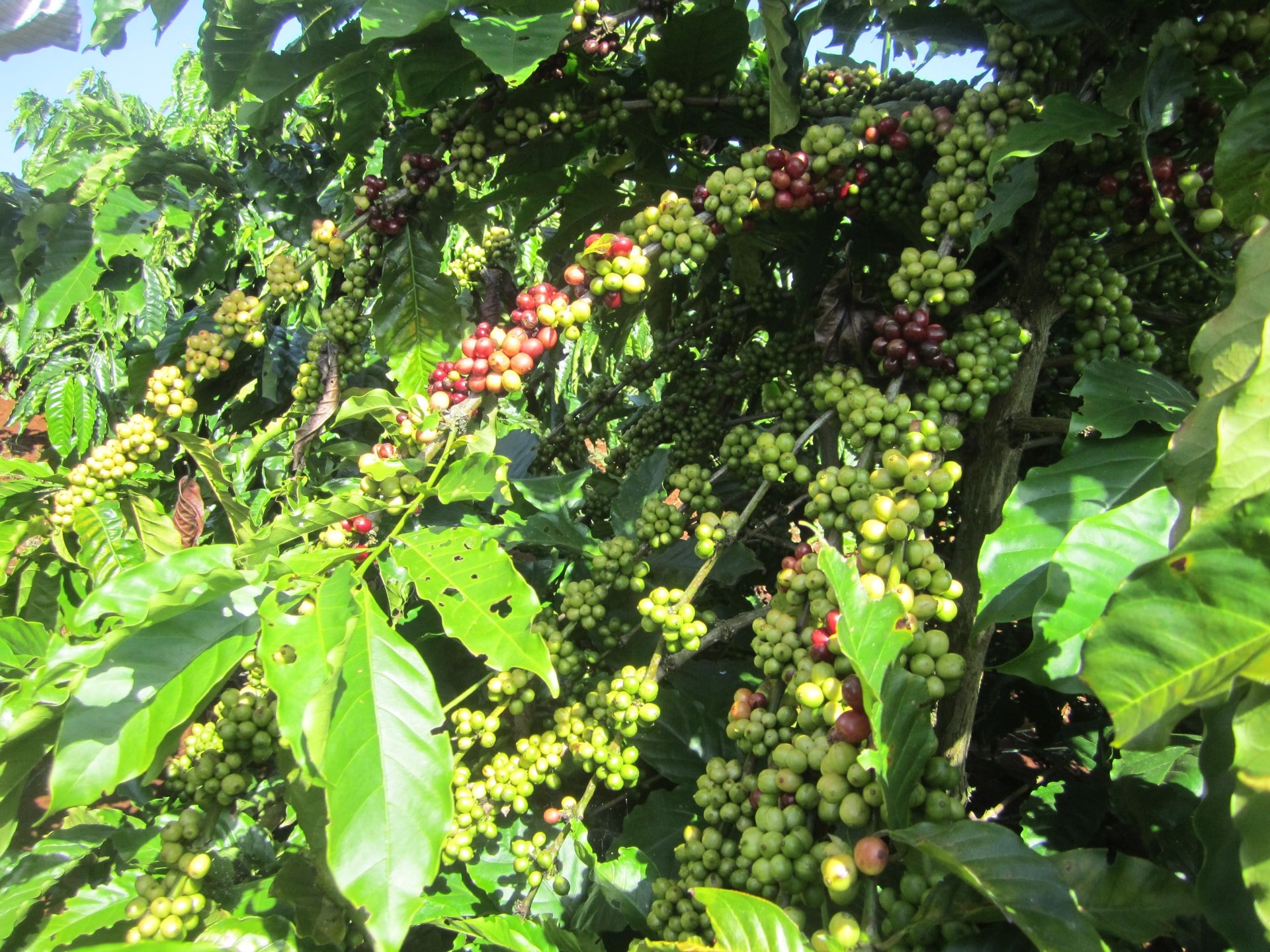
Organic coffee farming requires a rigorous technical process and thorough investment from the beginning. According to the Food and Agriculture Organization of the United Nations (FAO), growers are not allowed to use chemical pesticides or inorganic fertilizers, but instead use composted manure, biofertilizers and natural biological pesticides such as garlic extract, neem oil or ginger. These products are capable of repelling insects without harming the microbial ecosystem in the soil.
In addition, soil care is also very important, through measures such as planting grass to retain moisture, mulching, or multi-layer farming to increase fertility and protect microorganisms. Pest management in this model is also natural, taking advantage of natural enemies and encouraging the appearance of beneficial species such as bees or weaver ants.
Although the initial investment may be higher than the traditional model, many farmers have proven that profits after 2-3 years can be 30 to 50% higher thanks to the quality of coffee and stable selling prices.
The clean coffee market is opening up great opportunities for Vietnamese organic products. According to the Vietnam Coffee and Cocoa Association (VICOFA), markets such as the US, EU, Japan, and South Korea prioritize importing coffee with organic certifications such as USDA Organic, EU Organic, or Fairtrade. Products that meet the standards can be sold at prices 30–100% higher than regular coffee.
Many domestic brands have affirmed their position with organic models, notably K'Ho Coffee in Lac Duong (Lam Dong), Stone Coffee in Dak Lak or Chappi Mountains with a farming process combined with eco-tourism. These businesses not only export but also contribute to changing the farming mindset of the coffee growing community.
In particular, L'amant Café - a brand under Vinh Hiep Company Limited (Gia Lai) is the first brand in Vietnam to have a coffee farm that meets USDA organic standards of the United States Department of Agriculture. L'amant Café uses raw materials that meet international standards such as 4C, UTZ, BRC, Japan Organic and EU Organic. According to L'amant's representative, proactively choosing coffee varieties suitable for organic farming, combined with a strict quality control process, has helped this brand increase product value and build trust from international consumers.
Choosing the right organic coffee variety is not only a technical decision but also a long-term development strategy. In the context of Vietnamese agriculture transforming to adapt to climate change and meet global standards, organic coffee is the direction for sustainable development, increasing the value of agricultural products and protecting the living environment for future generations.
Source: https://baodaknong.vn/chon-giong-ca-phe-huu-co-quyet-dinh-quan-trong-cho-chat-luong-ben-vung-249547.html




![[Photo] National Assembly Chairman works with leaders of Can Tho city, Hau Giang and Soc Trang provinces](https://vphoto.vietnam.vn/thumb/1200x675/vietnam/resource/IMAGE/2025/5/11/c40b0aead4bd43c8ba1f48d2de40720e)

![[Photo] Discover the beautiful scenery of Wulingyuan in Zhangjiajie, China](https://vphoto.vietnam.vn/thumb/1200x675/vietnam/resource/IMAGE/2025/5/11/1207318fb0b0467fb0f5ea4869da5517)
![[Photo] National Assembly Chairman Tran Thanh Man attends the Party Congress of the Committee for Culture and Social Affairs](https://vphoto.vietnam.vn/thumb/1200x675/vietnam/resource/IMAGE/2025/5/11/f5ed02beb9404bca998a08b34ef255a6)

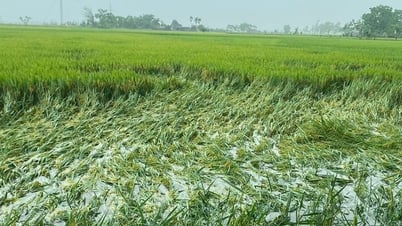
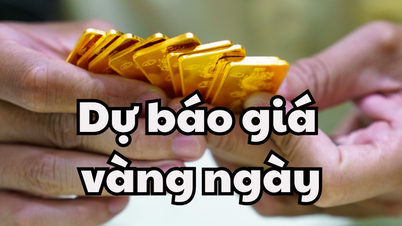

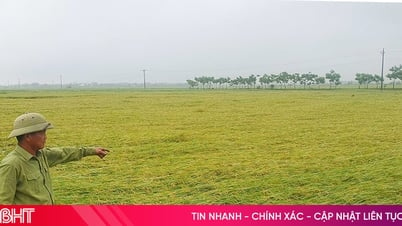









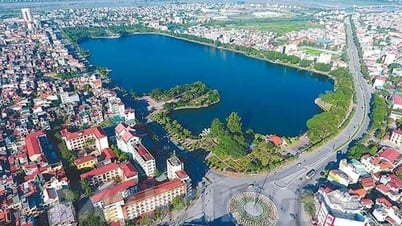

![[Photo] Prime Minister Pham Minh Chinh chairs the fourth meeting of the Steering Committee for Eliminating Temporary and Dilapidated Houses](https://vphoto.vietnam.vn/thumb/1200x675/vietnam/resource/IMAGE/2025/5/11/e64c18fd03984747ba213053c9bf5c5a)














































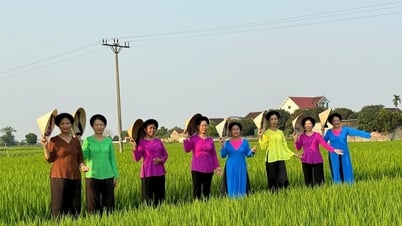





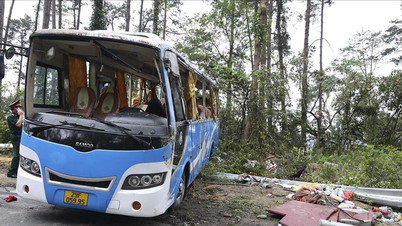












Comment (0)